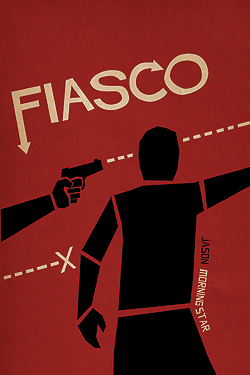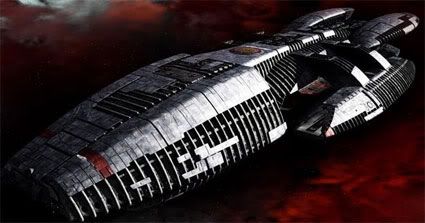
For a long time, space travel in fiction was predominantly shiny. Long, slender, cigar-shaped rockets predominantly made of chrome blasted off towards the stars. More often than not, equally shiny flying saucers spun their way towards our suburban homes to shower our Sunday barbecues with death rays. I am exaggerating a bit, but what I’m driving at is there was an aesthetic that remained largely untapped until 1977.
Just before then, the shiny sci-fi aesthetic extended to both realistic films like 2001: A Space Odyssey and episodic television such as Star Trek. Roddenberry, in particular, envisioned the future as a utopia, peaceful and squeaky-clean. Then along came a little movie called Star Wars. From the very beginning, it was something different. The Star Destroyer was enormous, imposing, and definitely not peaceful. The Tantive IV, said Star Destroyer’s prey, was battered and utilitarian. Mos Eisley was both visually and ethically dirty. And the Millenium Falcon? What a piece of junk!
The galaxy far, far away as envisioned by George Lucas is the result of literally thousands of years of history. The worlds and ships are used and lived-in. Even callbacks to earlier times, the tales set in the Old Republic, have worn edges and is painted with shades of gray morally and aesthetically. It was this, not the shiny utopian vision, that informed the immediate followers of Star Wars, such as the original Battlestar Galactica and Buck Rogers in the 25th Century.
Gene Roddenberry tried to resist this trend. Star Trek: The Next Generation was a big, bold utopian statement, to the point that Roddenberry himself said that there should be no interpersonal conflict on the gigantic new USS Enterprise. This lead to early seasons of the show often feeling pretentious and sterile. Thankfully, later seasons moved past this to have the crew behave more like real people than Federation pontificators, and Deep Space Nine pushed things even further. That show was concurrent with shows like Babylon 5 and FarScape, both of which introduced universes that were both brand new and familiar in their dynamics and feeling of history.
As fun as it is to envision a shiny, utopian future, the fact is that a more lived-in universe is more accessible to a wider audience. We picture ourselves more easily in a galaxy with some history, some mileage, and some rough edges, because it’s closer to the world we actually live in. We’ve walked down a street like the one we see in Mos Eisley. We’re familiar with being elbow-deep in our vehicle trying to get it to behave. We’ve had conversations with very stubborn, well-reasoned people, and tried to fight back against things that we feel are wrong, even if it’s an uphill battle. These are universal elements to good storytelling, no matter what the ‘verse in question might be – looking at you, Firefly.
What are some other instances of science fiction feeling lived-in and familiar, despite being set in galaxies far, far away?






